Idea by
Florian Niedworok
Research Team Pocket Mannerhatten
http://www.pocketmannerhatten.at
Call for ideas 2017
The collaborative City
The collaborative City
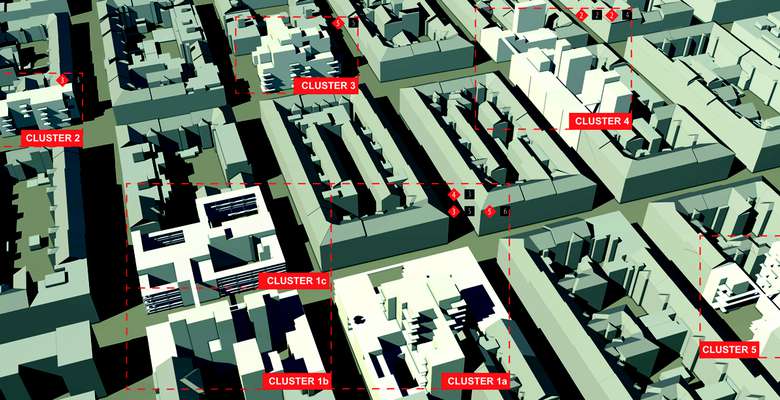
Shared use and shared access for parts of a building can crack the existing pattern of the urban fabric and create new synergies and impulses for the development of a city. Scenarios of spatial sharing can include shared circulation elements, mobility infrastructure, community spaces, roof top parks, green surfaces for facades and courtyards, technical building equipment, contracting and maintenance services. Different collaboration scenarios can be offered by city authorities and every activity contributing to the common good gets a range of benefits. These benefits can be subsidies, exceptions regarding the building code, infrastructure benefits or mediation support for participatory processes. Inhabitants form different collaboration clusters in the city with unique sharing scenarios bound to their specific needs and desires. A culture of collaboration and sharing evolves and leads to a spatially more efficient, innovative, more ecologic and socially more active urban development.
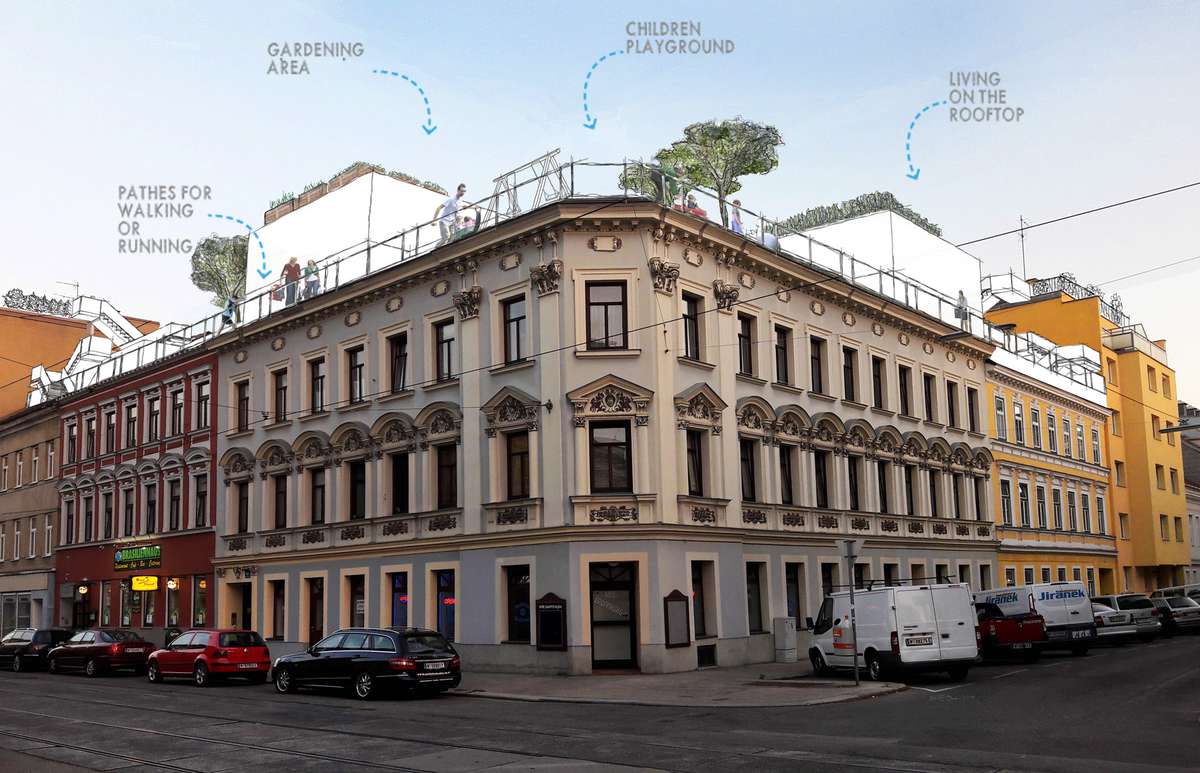
New sharing structure plugged on the existing urban fabric including plot-crossing gardens, playgrounds and skywalks.
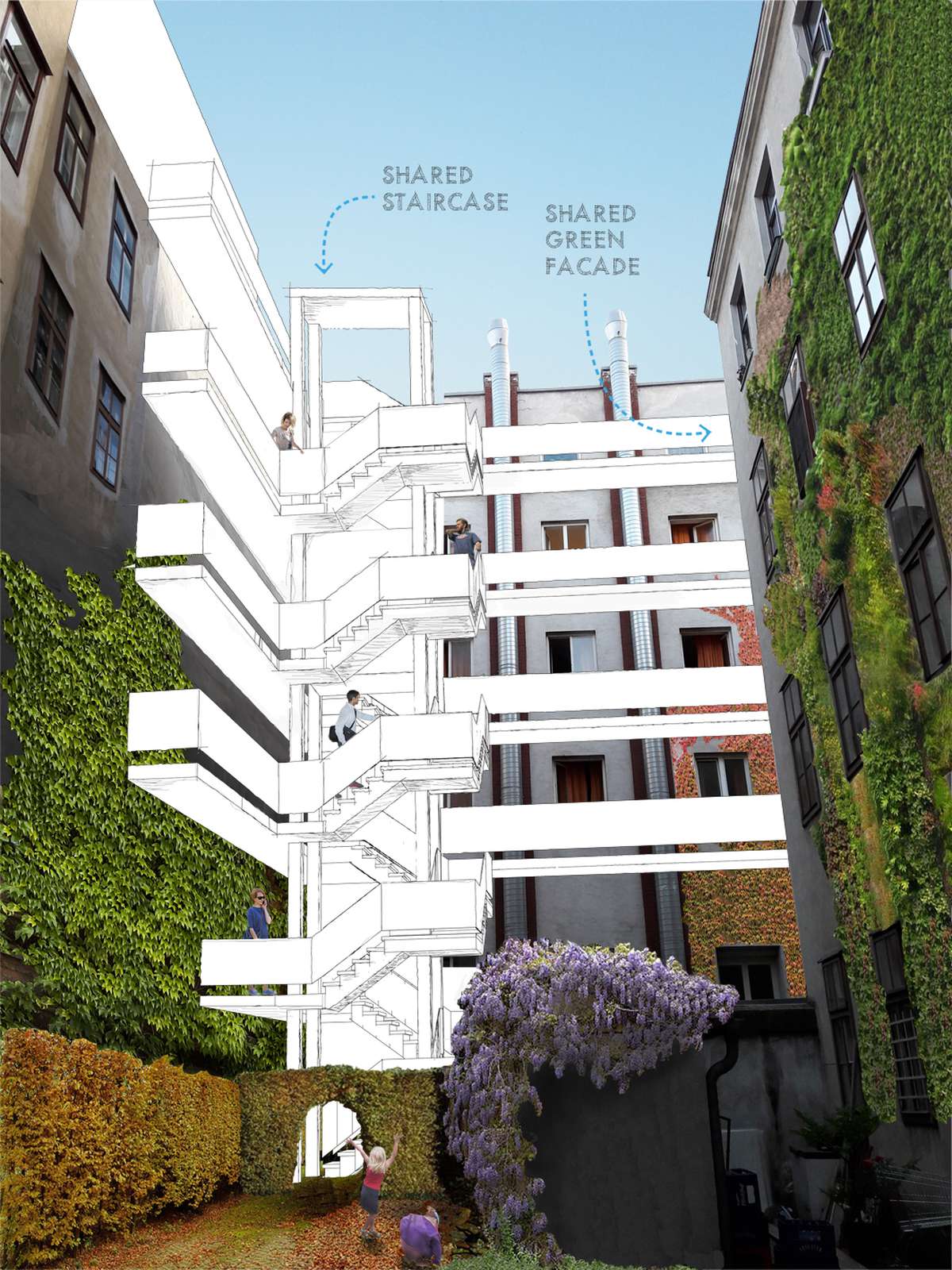
Shared staircase and elevator give barrier free access to all areas of the neighbourhood and a plot-crossing green facade brings nature back to the courtyard
The collaborative City
The collaborative City

Shared use and shared access for parts of a building can crack the existing pattern of the urban fabric and create new synergies and impulses for the development of a city. Scenarios of spatial sharing can include shared circulation elements, mobility infrastructure, community spaces, roof top parks, green surfaces for facades and courtyards, technical building equipment, contracting and maintenance services. Different collaboration scenarios can be offered by city authorities and every activity contributing to the common good gets a range of benefits. These benefits can be subsidies, exceptions regarding the building code, infrastructure benefits or mediation support for participatory processes. Inhabitants form different collaboration clusters in the city with unique sharing scenarios bound to their specific needs and desires. A culture of collaboration and sharing evolves and leads to a spatially more efficient, innovative, more ecologic and socially more active urban development.
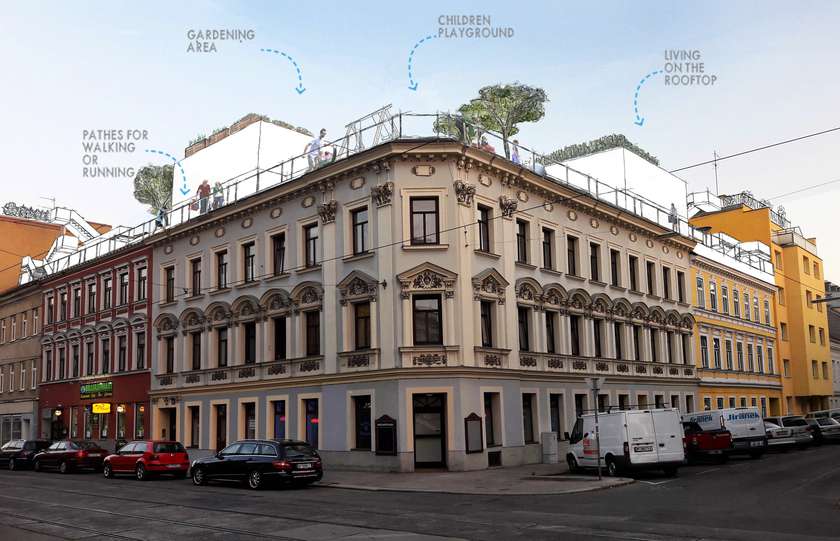
New sharing structure plugged on the existing urban fabric including plot-crossing gardens, playgrounds and skywalks.
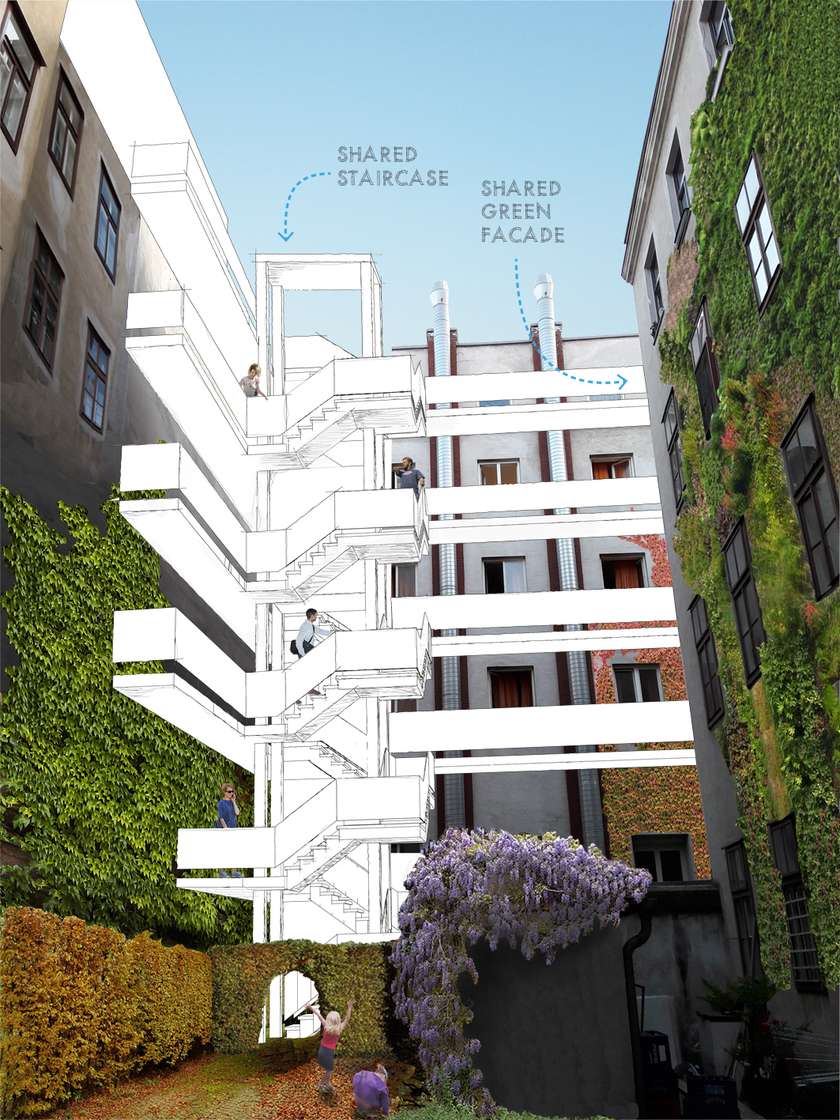
Shared staircase and elevator give barrier free access to all areas of the neighbourhood and a plot-crossing green facade brings nature back to the courtyard
